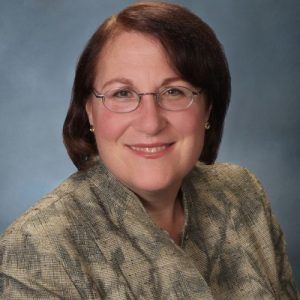 A $5 million leadership gift from Dr. Deborah Rose, SM ’75, expands the existing Rose Traveling Fellowship Program in support of a new Rose Service Learning Program. Combining educational experiences with engagement in local communities, either domestic or abroad, service learning is a simple yet profound approach by which students help others while participating in academic study.
A $5 million leadership gift from Dr. Deborah Rose, SM ’75, expands the existing Rose Traveling Fellowship Program in support of a new Rose Service Learning Program. Combining educational experiences with engagement in local communities, either domestic or abroad, service learning is a simple yet profound approach by which students help others while participating in academic study.
Dr. Rose is a chronic disease epidemiologist with interests in psychosocial epidemiology, demography, environmental health, and sustainable development. She has spent over 20 years designing and analyzing data from the US National Health Interview Survey focusing on 1990 Health Objectives, Healthy People 2010, tobacco use, Hispanic health, and advising the Ministries of Health of Hungary, Mexico, and Taiwan on best practices for their health interview surveys. She also was the first to advise the National Health Interview Survey of Mexico asking Mexican women about breast cancer screening practices. The resulting module uncovered the previously hidden epidemic of female breast cancer in that country. Two of her current projects are (1) co-chairing a conference on the formulation, assignment, protection, and use of national identification number systems, to be held at Harvard in November 2015 and (2) working with the University of Cape Coast, the Yale Alumni Service Corps, and the community of Yamoransa, Ghana, to bring computing, clean water, and sanitation to this crossroads village. In this capacity she is enstooled as Nana Abena Nkosuo Hemaa (Queen Mother for Development). Dr. Rose has a BA, MPH, and PhD from Yale University, and an SM in Population Studies from the Harvard TH Chan School of Public Health.
Dean Michelle A. Williams, ScD ’91, is a longtime champion of service learning. “This is one of the best ways I know for students to gain cross-cultural understanding while pursuing research that advances their professional goals,” she says. “Service learning broadens the horizons of those who participate and provides real value to the people served. And the students come away transformed by their experiences.”
Rose’s generous gift recognizes and builds upon the substantial impact of the Rose Traveling Fellowship Program, which has dramatically broadened opportunities for cross-cultural exchange in both developed and developing countries since it was established in 2010. To date, more than 50 Rose Traveling Fellows have engaged in unique educational and research experiences that have helped shape them as future leaders in public health service and practice.
Expanding on the Rose Traveling Fellowship Program’s support for students and postdoctoral scholars in the Departments of Epidemiology and Biostatistics, the Rose Service Learning Program will now offer fellowship opportunities to students, postdoctoral scholars, and junior faculty members in all of the School’s departments. “I believe that education, hands-on experience, service to others, reflection, and writing are deeply intertwined,” says Rose.
“Adding a cross-cultural component, whether at home or abroad, encourages a review of one’s most basic assumptions and deepens understanding. Expanding such opportunities to scholars in all departments extends these benefits to all.”
Rose has been committed to cross-cultural public health efforts for decades. A chronic-disease epidemiologist with interests in psychosocial epidemiology, cognitive psychology, health behaviors, demography, and environmental health, combined with sustainable, locally initiated development, she has spent more than 20 years developing and analyzing data from the U.S. National Health Interview Survey. She focused on tracking progress toward U.S. health goals between 1990 and 2010, with an emphasis on monitoring tobacco use in the U.S. and health disparities among Hispanics. She has advised the Ministries of Health of Hungary, Mexico, and Taiwan on best practices for their health interview surveys. Rose is currently working with partners at Yale, the University of Cape Coast in Ghana, the Ministries of Education and Health of Ghana, and the Yamoransa Community Development Committee in an ongoing collaboration to enhance opportunities for computing, education, clean water, sanitation, and local health care for the people of the village of Yamoransa and the surrounding communities. At Harvard, she spearheaded an international conference on “21st Century Identification Systems,” which has become an ongoing project, in collaboration with colleagues at the FXB Center for Health and Human Rights.
“I am deeply grateful to Dr. Rose for her vision in promoting the critical priorities of international engagement and service learning at the Harvard Chan School,” says Williams. “Her generosity will ensure in perpetuity that members of our community will have opportunities to gain hands-on experience that prepares them for high-impact careers in global public health.”
You must be logged in to post a comment.